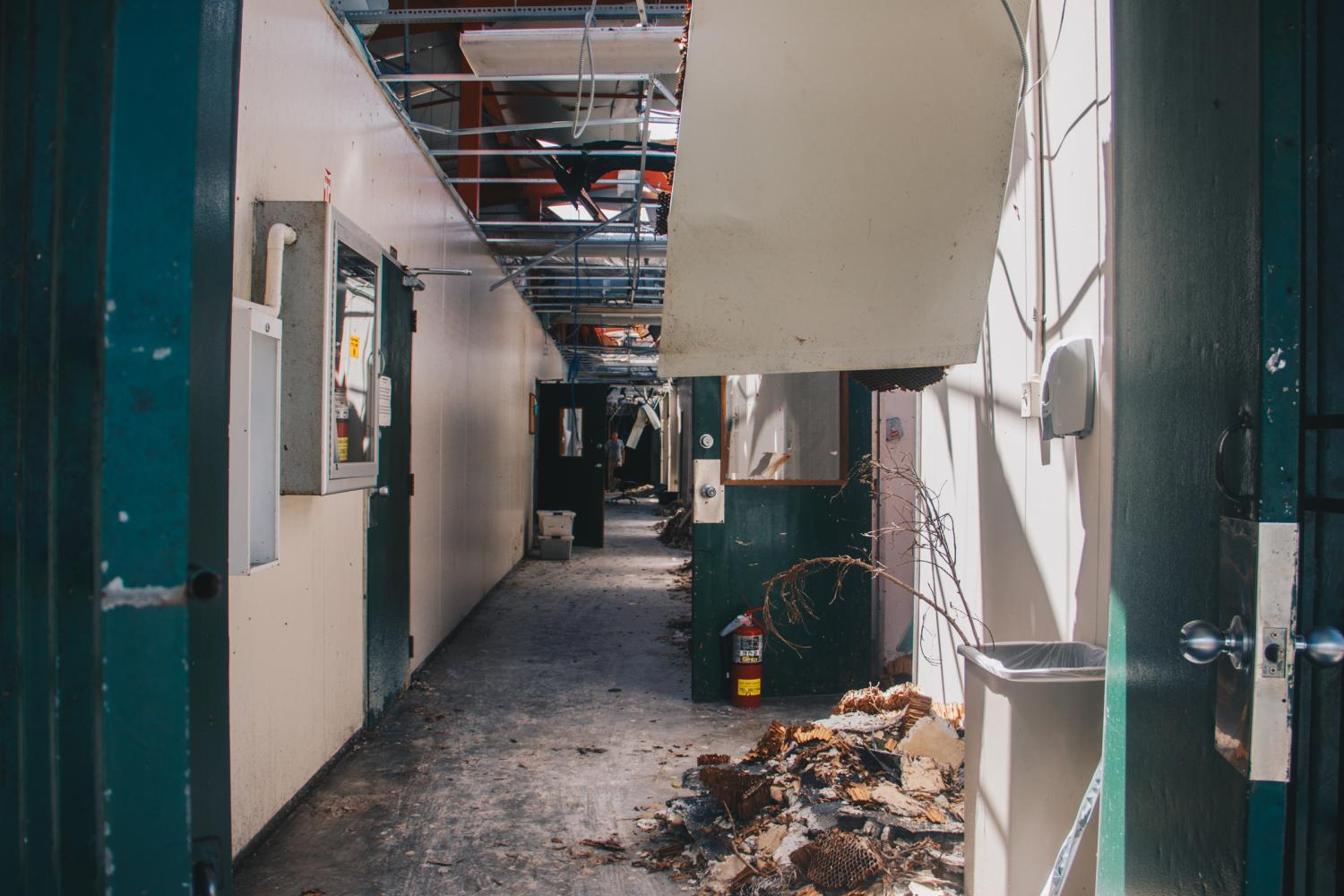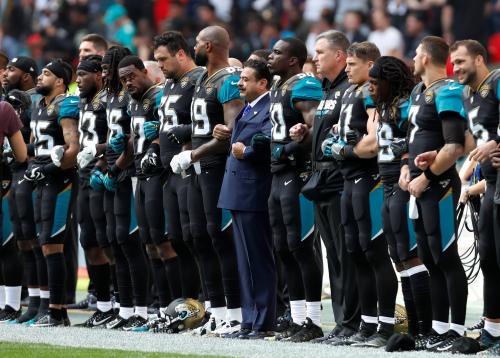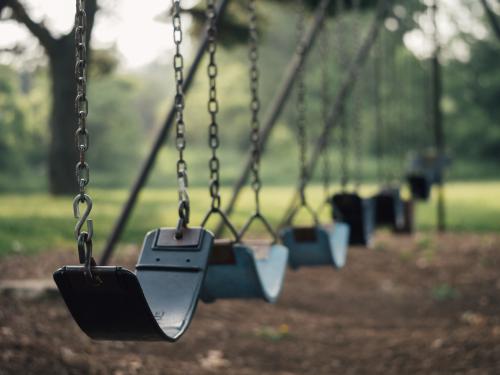This story was produced by The Hechinger Report, a nonprofit, independent news organization focused on inequality and innovation in education. Read more about education in New Orleans.
Hurricane Maria is Trump’s Katrina
The cries of suffering grow more intense with each passing day of equivocation and indifference to storm-ravaged Puerto Rico by President Trump. They echo the howls heard after Hurricane Katrina. Last Friday, Trump tweeted, “The fact is that Puerto Rico has been destroyed by two hurricanes. Big decisions will have to be made as to the cost of its rebuilding!” Twelve years prior, then-House Speaker Dennis Hastert suggested that a flooded New Orleans be bulldozed. Responses to “chocolate cities” and U.S. territories differ from those to Houston in the aftermath of Hurricane Harvey.
While the political drama plays out in D.C. and mainstream media, we cannot forget that every day of delay has devastating consequences for our brethren in Puerto Rico. The collapse of the power grid, limited supply of clean running water, and widespread destruction of facilities reflect the depth of the island’s despair. Its people were already reeling from a financial crisis, and now they are fleeing, including those best positioned to work in the future economy. Today, college students must ask themselves the most difficult of questions: should I use my brains and brawn to help rebuild my home, or should I continue to develop intellectually at a college on the mainland? Clearly, there are no right or wrong answers to this deeply personal dilemma, but college administrators in the continental U.S. and federal education officials must give students the option.
Collegians flooded out of their homes and postsecondary institutions in Puerto Rico likely need to leave their electricity-starved island if they want to continue their education. Consequently, mainland colleges must open their doors like they did for New Orleans co-eds who could not return to their campuses in the immediate aftermath of Katrina in 2005; there is a blueprint.
But students’ coursework isn’t the only concern. The intellectual capital of Puerto Rico hangs in the balance. A mass exodus will accelerate the ongoing brain drain spurred by Puerto Rico’s soaring debt crisis. In our view, the morally sound response is to build on the current assets and strengths of Puerto Rico. College students and higher-ed institutions should be a part of that response.

A college degree is truly a luxury when electricity and water are in short supply. The Hill reported that 44 percent of Boricuas (another term for Puerto Ricans) lack running water, and nearly everyone is without electricity. But brainpower doesn’t have to be lost. Colleges should not only take in students, they must also deploy researchers and student volunteers who can go to Puerto Rico and help. We propose a kind of student exchange with an urgent purpose—Boricua students and faculty who want to leave can go to the mainland, and their counterparts can make the journey in reverse. Universities did this informally after Katrina, through an array of community service projects and spring break trips. After the most devastating hurricane season on record, it’s clear that many cities have a stake in developing an exchange system to help deal with disasters. An ad hoc federal response to inevitable storms is clearly insufficient, unorganized and too costly.
The healthy exchange of ideas is what helps define quality higher education. The problems faced by Boricua students, while challenging on many levels, are also an opportunity to live up to that meaning.
There are 203 accredited postsecondary institutions on the island of Puerto Rico, according to analysis of the U.S. Department of Education Database of Accredited Postsecondary Institutions and Programs. Approximately 250,000 students were enrolled in the 155 Puerto Rican institutions that received federal financial aid in the fall of 2015, according to our analysis of the Integrated Postsecondary Education Data System.
There are potentially more than a quarter of a million collegians in Puerto Rico affected by the storms, a conservative estimate.
Meanwhile, on the mainland, more than 5,000 colleges and universities are teaching 20 million students this year. Those are a lot of numbers, but the conclusion they add up to is that there’s room to house Boricua students and support Puerto Rico.
Those upended by Maria are eligible for waivers under financial aid rules, which allow amendments for students in the military and/or those affected by disaster or national emergency. Higher education leaders should pressure Congress to rush legislation that assures Boricuas that they can transfer without being unduly financially burdened. Migrating students will need travel stipends, tuition, and room and board assistance as part of their new financial package. Right after Katrina in 2005, a delegation of New Orleans college presidents pressured the House of Representatives to pass the Pell Grant Hurricane and Disaster Relief Act, which permitted the waiver of Pell Grant repayment for students affected by natural disasters as well as other legislation that extended deferrals and deadlines, and recalculated students’ need for financial aid.
But long-term recovery is as much about who we send to Puerto Rico to learn and rebuild as well as the locals who stay. Lessons from Hurricanes Katrina and Rita teach us that colleges must push recovery in places where the federal government is slow to do so.
Picture a domestic version of the Peace Corps, the national study abroad program that sends Americans around the world to help people in countries in distress. In a “collegiate recovery corps” version, undergraduates would be given opportunities to gain real-life experience and academic credit through faculty-directed service-learning projects that help cities recover from disasters. Mainland universities would also have to open their doors to students who may simply want to study elsewhere. Such an exchange program would provide displaced students with a stable university to continue their studies as well as offering unaffected students an opportunity to aid recovery in a disaster zone.
For instance, the territory suffered an engineering failure, land-use catastrophe and climate calamity. We should help Boricuas rebuild in such a way that prevents these manmade disasters from happening again. Determining proper building codes, recommending proper land use, and building better levee systems are ways that universities can help communities. Training the locals, people who are likely to stay, is the best way to do this.
The Universidad Politecnica de Puerto Rico is the number one institution issuing masters degrees to Latinos in science, technology, engineering, and math, according to Excelencia in Education, a nonprofit research group that studies Latinos in higher education. The entire U.S. can’t afford for it to lose momentum. Engineering students from other schools can learn under its direction, avoiding the problems that come with parachuting in without a cultural ambassador from the area as a guide. We can help affected universities build capacity while helping the island get back on its feet.
If there is ever a time for higher education to demonstrate it can positively transform people and places, it’s in the wake of disaster. This is a classroom in which the most important lessons are learned through doing.
The Brookings Institution is committed to quality, independence, and impact.
We are supported by a diverse array of funders. In line with our values and policies, each Brookings publication represents the sole views of its author(s).







Commentary
Higher education must stand up for Puerto Rico
October 2, 2017